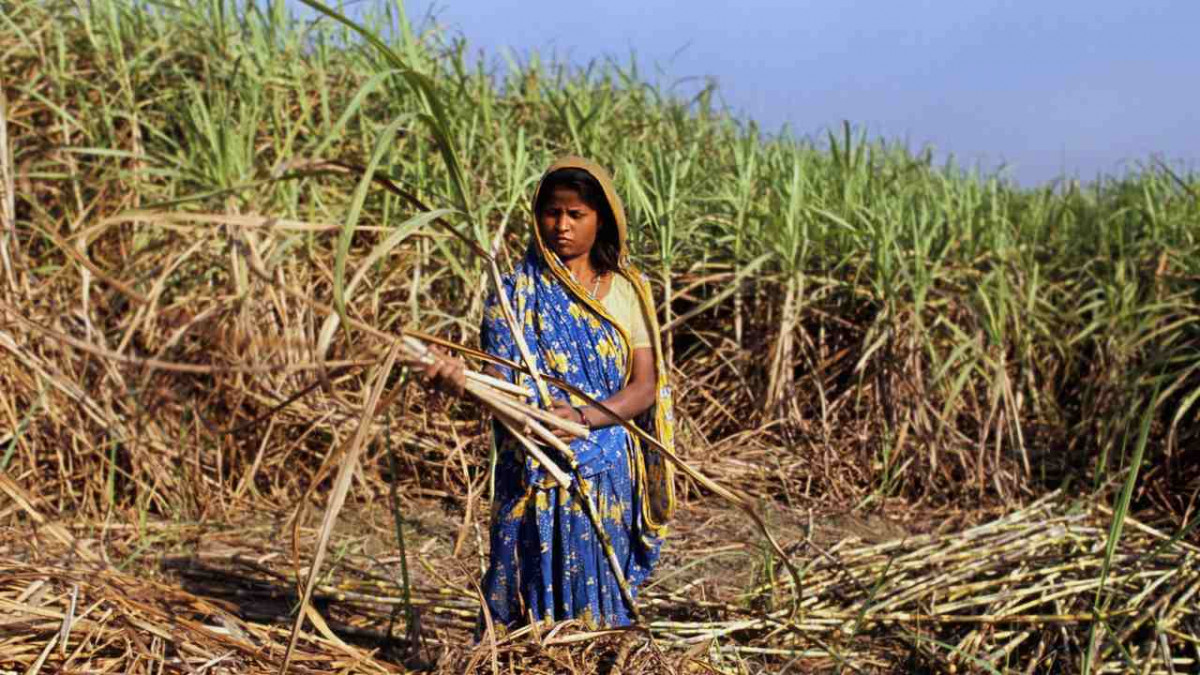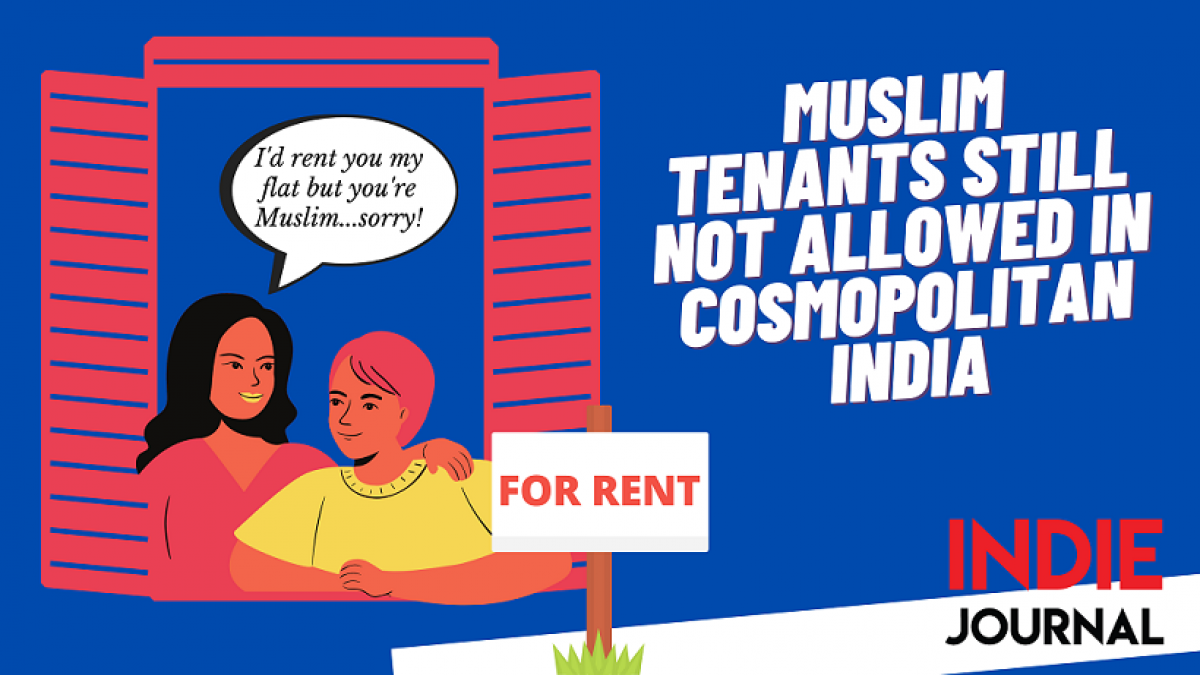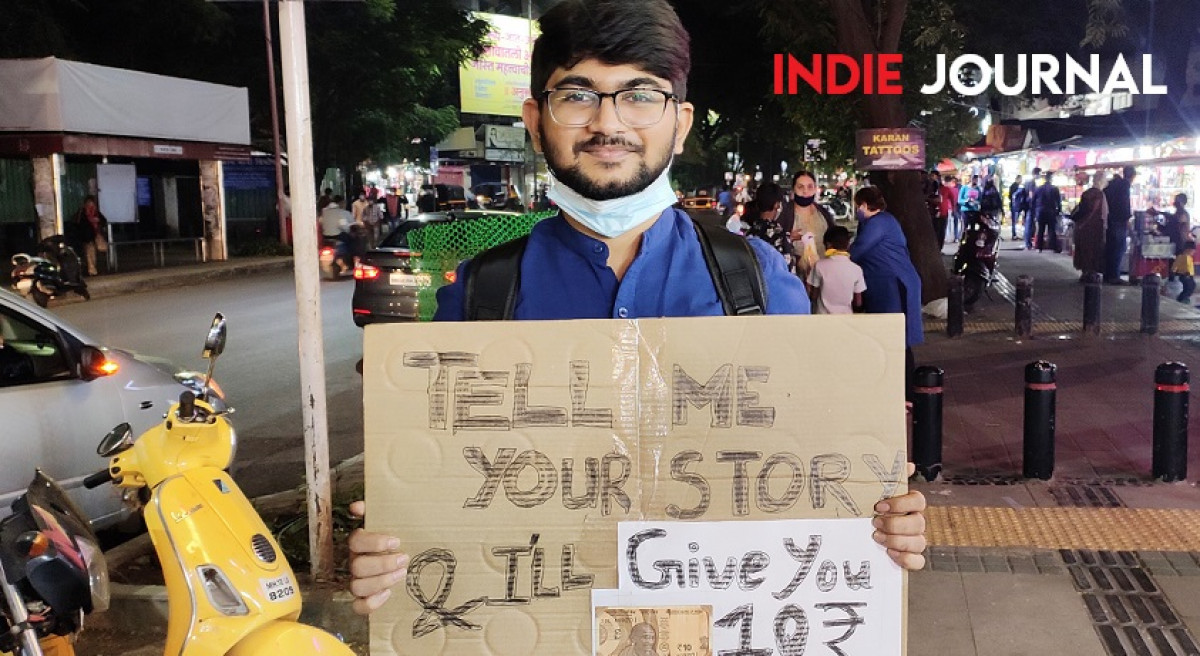India
The curse of being a sugarcane cutter
Sugarcane cutters from Beed face drought, extreme poverty, seasonal migration and lack of alternative employment.

Sugarcane cutters from Beed and their families are left in appalling conditions due to the drought, extreme poverty, seasonal migration and lack of alternative employment. Despite having a marginal piece of land in their names, they are forced to migrate every season to work as sugarcane cutters in the sugar belt of western Maharashtra, Telangana, Karnataka and few parts of Andhra Pradesh.
Ahead of the sugarcane crushing season that commences in October, contractors have started approaching sugarcane cutters in and around Beed. Each contractor, or the mukadam, first signs an agreement with the sugar factories which guarantees him 15-20% commission for hiring a pair of sugarcane cutters. The mukadam then approaches these farmers asking them to work as sugarcane cutters by paying them a hefty advance, thus ensuring their service for the next 5-6 months. For the contractors, this might be one of the multiple sources of income, however, for the sugarcane cutters, it is the only source of income for the whole year.
Explaining the situation, Ajit Navale, member of All India Kisan Sabha says, “Once the mukadam hires these workers, they start migrating towards the regions allotted to them. For every tonne of sugarcane they cut, they earn Rs.250 which is quite minimal because the money earned in these few months is supposed to last the families for the whole year. Though the mukadam takes care of their food and health expenses in addition to the hefty advance, they cannot afford to fall sick because missing one day of work incurs a fine of Rs.500.”
“We already earn too little for the whole family and missing work due to sickness is a luxury that we cannot afford. Many of us have worked when we clearly weren’t in proper condition. Last year our community lost a young boy who was malnourished but, still continued to work”, says Bhau Ugale, a sugarcane cutter from Beed.
Further describing the intricate processes of hiring sugarcane cutters, Yogesh Pande, member of the Swabhimani Shetkari Sanghatna says, “Sugarcane cutters are hired in pairs and are called as Jodi. A Jodi is hired for 6 months where they can earn anywhere between Rs.50,000 to 1 lakh by working a shift of 12-18 hours per day. If the Jodifinishes it’s work before the promised period, they have to return some amount of their advance, and any failure to do so results in captivity of the Jodi until the amount is repaid.”
For sugarcane cutters, work starts from 4 AM and goes on until the afternoon. The community lives in small huts with no proper sanitation facilities. And, because they barely earn any money, their children aren’t admitted to school either. “The families prefer enrolling children into the cane cutting business rather than in a school; at least that way the family can earn more money. Very rarely does someone go to the college and become an engineer or an officer”, says Pande.
Additionally, sugar factories have also started replacing manual labour with machines now which only adds to the difficulties of these sugarcane cutters. “We don’t have any alternate employment. All of us are uneducated and barely earn anything. Going to cities for work, or setting up our own small business requires money. Some of us have small pieces of lands but they won’t earn as much. It’s a curse to be a sugarcane cutter because we are stuck here. Once machines replace all of us, no one knows what will happen to us”, says Ugale. He further comments that political parties pay attention to their issues only ahead of elections, but post that no one cares about how the community struggles to survive.
Besides these major issues, Beed sugarcane cutters’ community is also known as the community where women have no wombs. “Contractors usually don’t hire menstruating women as they may end up taking frequent breaks while cutting sugarcane. The drought and poverty have left no choice for these women other than working as much as they can without missing work as missing one day of work incur a fine of Rs.500. Some women have also found that working in fields while menstruating has resulted in vaginal infections. As a solution, women have started getting hysterectomies (surgery performed to remove the uterus) so that it doesn’t become a hindrance”, says Usha Karmale of Ekal Mahila Sanghatan.
She further states that it has become a norm for the women community members to get their womb removed after giving birth to 2-3 children. More than 50% of women have got hysterectomies done, some even below the age of 25. Additionally, lack of toilets, bathrooms and proper sanitation facilities in the sugarcane settlements piles up the issues faced by these women.
Tushar Ghole, a contractor clarifies the situation saying, “We don’t force anyone to get a hysterectomy, it’s completely their own choice. However, along with the private doctors, we help these women financially if, and, when they decide to get their uteruses removed. This doesn’t mean we encourage them or stop them from doing anything.” According to a report in The Hindu, private doctors suggest a hysterectomy to women even if they mention anything about abdominal pains or white discharge.
A member of Mahila Kisan Aadhar Manch says that women are suggested these unnecessary surgeries without educating them about consequences like hormonal imbalance, mental health issues, weight gain, etc. She further states that several young women, aged between 14-25 have approached them to seek help form constant sexual exploitation conducted by the contractors and men of the new village they have migrated to.
In a recent press conference held by the legislative council in Pune, issues of female sugarcane cutters regarding their forced hysterectomies were underscored and mobile toilets and mobile clinics were introduced as a solution. An investigation into the corrupt intricacies of these practices was also directed, along with a wide survey of sanitation facilities near the sugarcane cutters’ settlements. A report based on these directives will be presented on 30th July post which appropriate steps are expected to be taken to resolve these issues and help the community.





